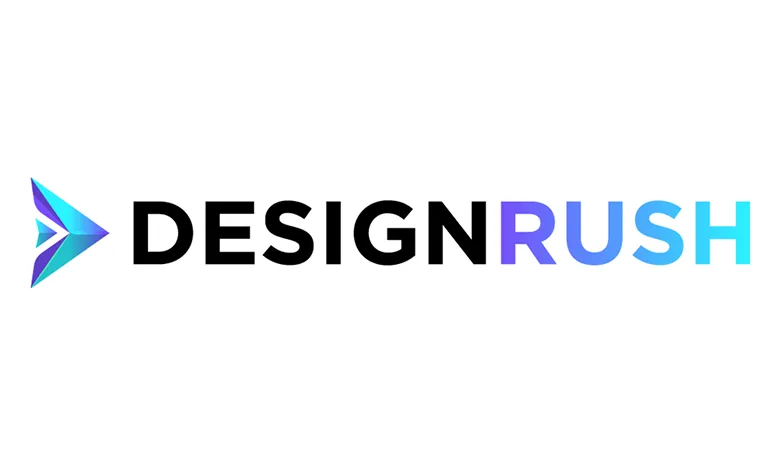Marketing That
Really Works!

AI in Web Design: Revolutionizing User Experience
In the dynamic world of digital interfacing, the integration of artificial intelligence in web design isn't just a trend—it's a revolution that is fundamentally altering how we create and interact with websites. As a forward-thinking marketing agency, we are constantly exploring innovative ways to fuse AI with our web design projects, ensuring each website is not only visually appealing but also intuitively aligned with user behaviors and preferences.
This approach towards AI-enhanced web design facilitates a more personalized user experience. By leveraging advanced AI tools, we can analyze vast amounts of data in real-time, predicting user preferences and behaviors with remarkable accuracy. This capability allows us to tailor website functionalities and content dynamically, catering to individual user needs even before they articulate them.
The use of AI in web design empowers us to automate and optimize a myriad of routine tasks, from layout adjustments to complex behavioral analyses, all aimed at enhancing user engagement and retention. This strategic implementation of AI ensures that our web designs are not only efficient and intelligent but are also continuously evolving in response to user interactions, setting a solid foundation for the future of personalized web experiences.
Understanding AI in Web Design: What It Means for Us
Incorporating artificial intelligence into web design is more than just using new tools; it's about fundamentally rethinking how websites are created and interacted with by users. For us, AI in web design means personalizing user interactions at an unprecedented scale and depth. With AI, we're capable of analyzing user data in real-time to adapt the website's content, design, and functionality to better meet individual needs and enhance the overall user experience.
The role AI plays in our web design process not only pertains to aesthetic elements but also influences the technical composition of websites. For example, through machine learning algorithms, we enhance site navigation by predicting and adjusting to user behaviors, thereby decreasing bounce rates and improving conversion rates. This proactive adaptation ensures that each visitor's experience is as engaging and efficient as possible.
The Top 5 AI Tools Revolutionizing Web Design Today
As the digital world evolves, so do the tools that shape our approach to web design. Here’s a look at the top five AI tools that are currently transforming how we create and manage websites:
1. Adobe Sensei: Harnessing the power of Adobe's AI, we refine images and graphics seamlessly within web layouts, making designs both more appealing and faster to load.
2. TensorFlow: Utilized principally in the backend of web design, this open-source framework helps us analyze user data and optimize site performance with predictive modelling.
3. ChatGPT: We use this AI-driven chatbot tool from OpenAI to implement sophisticated, conversational user interfaces on websites, enhancing customer service and engagement.
4. BERT (Bidirectional Encoder Representations from Transformers): Developed by Google, BERT enables us to better interpret the natural language processes and intents of users, facilitating more accurate responses to search queries and commands on websites.
5. Pictory: This tool allows us to generate text-based site content from existing visuals or create visuals from textual content, streamlining the creation process and ensuring a coherent site narrative.
Each of these tools plays a crucial role in how we design and maintain the functionality, usability, and accessibility of websites, ensuring a top-tier user experience through the power of AI.
Step-by-Step: How We Integrate AI to Enhance User Experience
Our approach to integrating AI into web design focuses on enhancing every aspect of the user experience from the front end to the back end. We begin by understanding the specific needs and behaviors of the website’s target audience. Using data-driven insights, our AI systems analyze how users interact with the site, identifying patterns that translate into actionable design improvements. This process makes sure we're not just designing for aesthetics but for optimal user engagement and functionality.
Next, we tailor content dynamically. AI tools help us modify content in real-time based on the user’s behavior and preferences. This personalization isn’t just about showing more relevant products or services; it’s about creating a unique journey for each user. Whether it’s adjusting the layout, modifying the navigation, or personalizing content, our AI implementations are meticulously configured to improve the user experience seamlessly and efficiently.
The Future of Web Design: Predictions Based on Current AI Trends
Looking forward, the integration of AI in web design is set to become more advanced and nuanced. In the future, we anticipate AI will not only automate tasks but also predict trends and design elements before they become mainstream. Real-time adaptation and anticipative design adjustments will lead to websites that not only react to user behavior but also anticipate needs before the user even recognizes them.
Moreover, as AI technology evolves, so will its integration into the Internet of Things (IoT), making web design smarter by connecting various user devices for a unified user experience. This holistic approach will enable us to create more cohesive and intuitive user interactions across multiple platforms. The continuous learning capabilities of AI will make it possible for web designs to evolve quickly with user feedback, ensuring websites remain up-to-date with the latest user expectations and technological advancements.
Conclusion
In our journey to infuse AI into our website designs, we remain committed to creating experiences that are not only visually appealing but also profoundly aligned with individual user needs. The convergence of AI with web design has provided us with the unparalleled capability to adapt, predict, and engage in ways that traditional approaches could never facilitate. As we look to the future, our focus will remain on harnessing the latest AI advancements to continue pushing the boundaries of what is possible in web design.
If you're eager to see how Meshroad Marketing can transform your web presence with cutting-edge AI solutions, get in touch with our web designer in Vancouver today. Together, we can craft a digital experience that truly resonates with your audience and sets your brand apart in this fast-evolving digital landscape.








